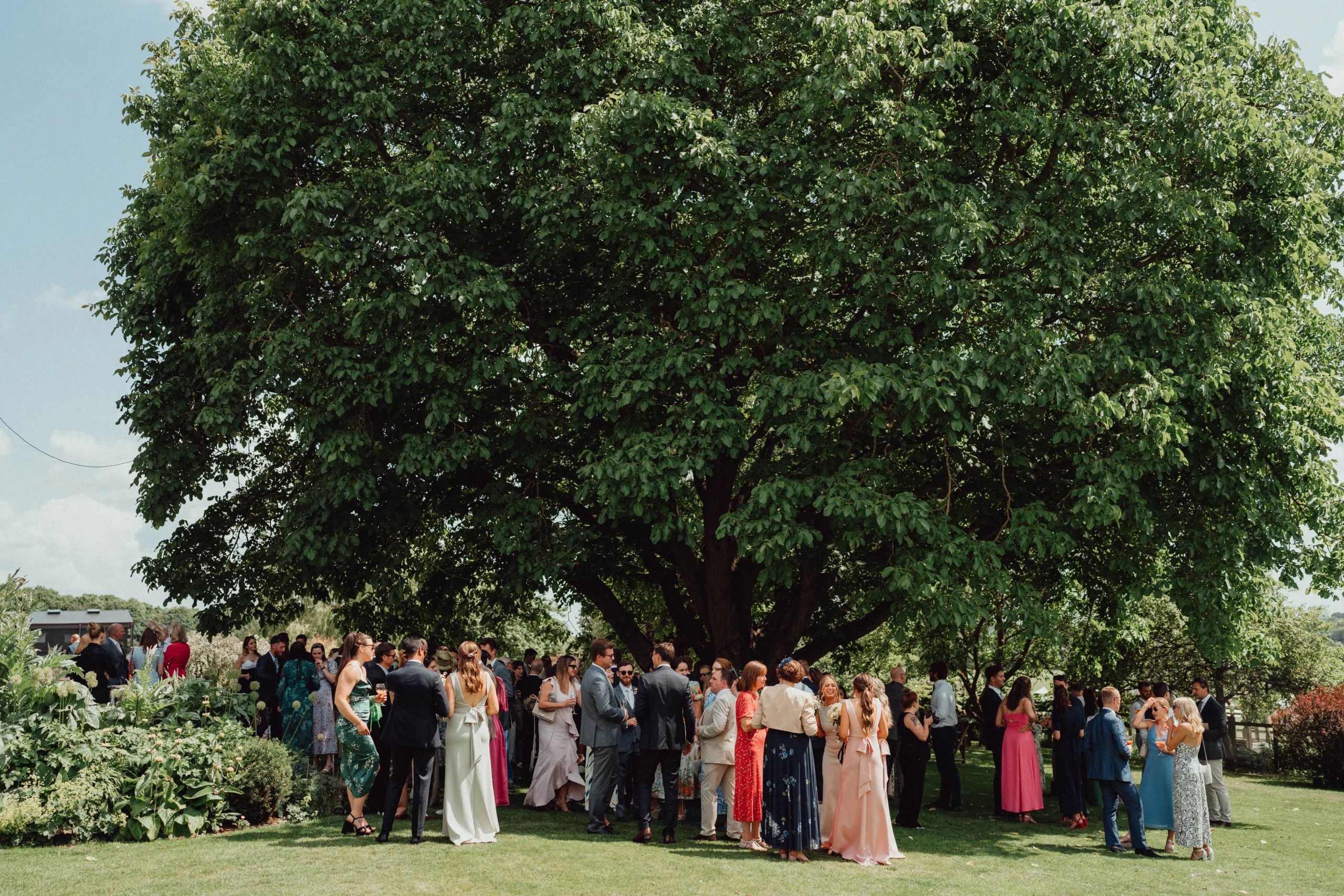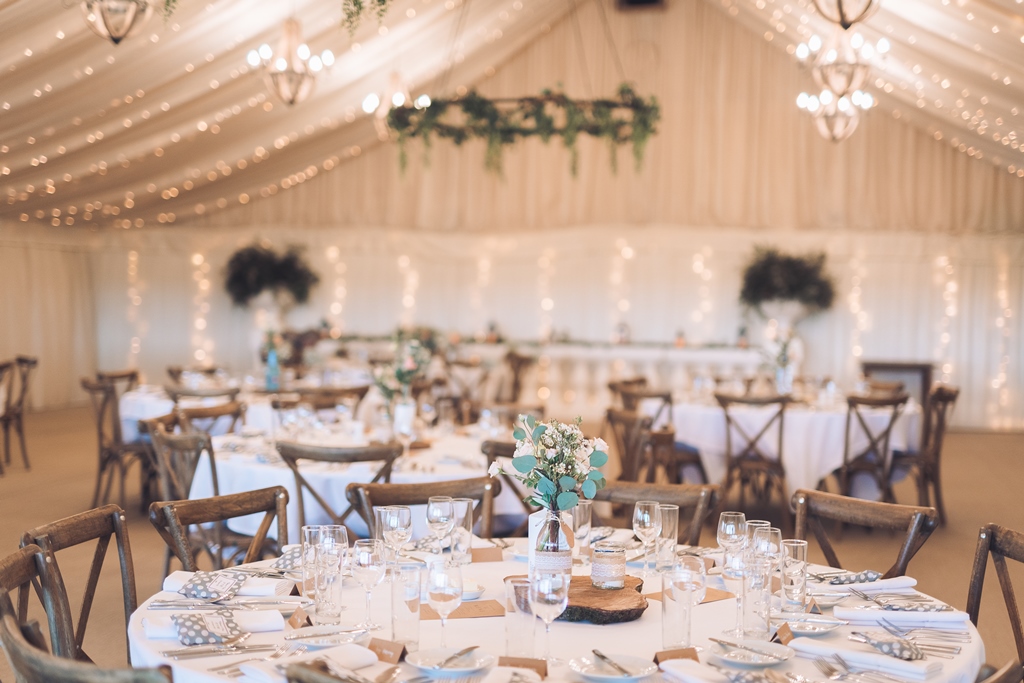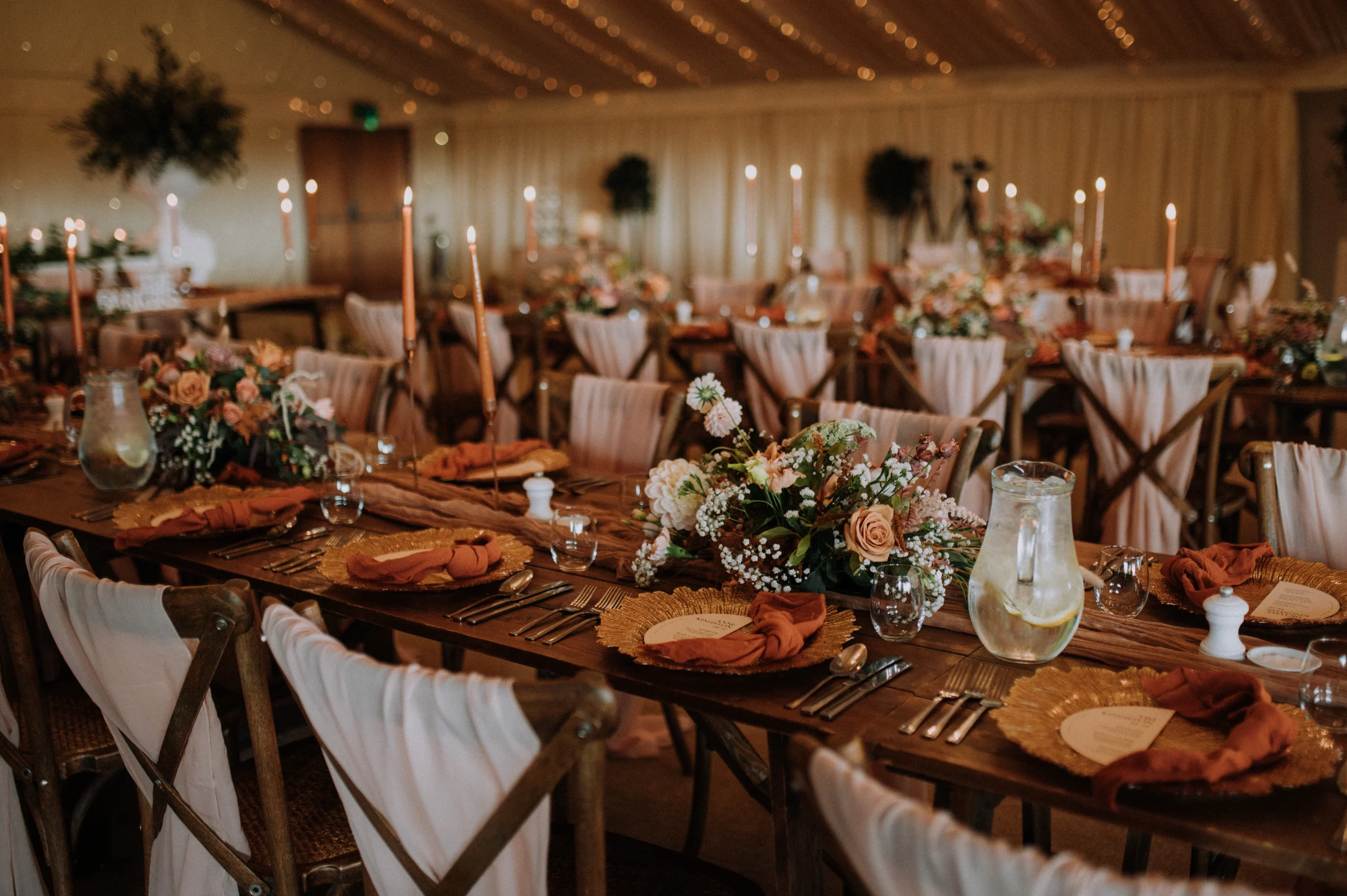Planning a Wedding: What to Do First to Avoid Last-Minute Problems
Guides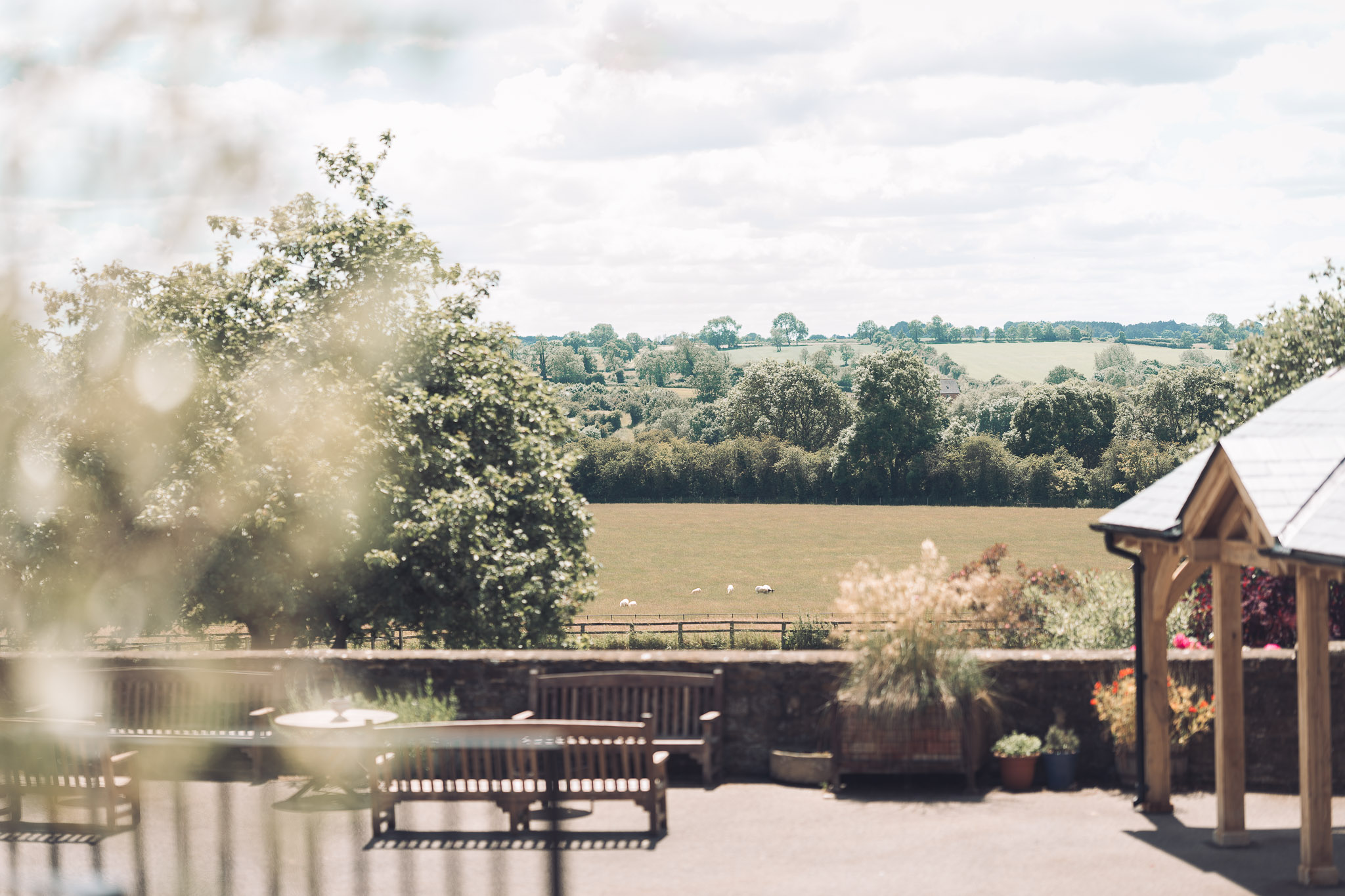
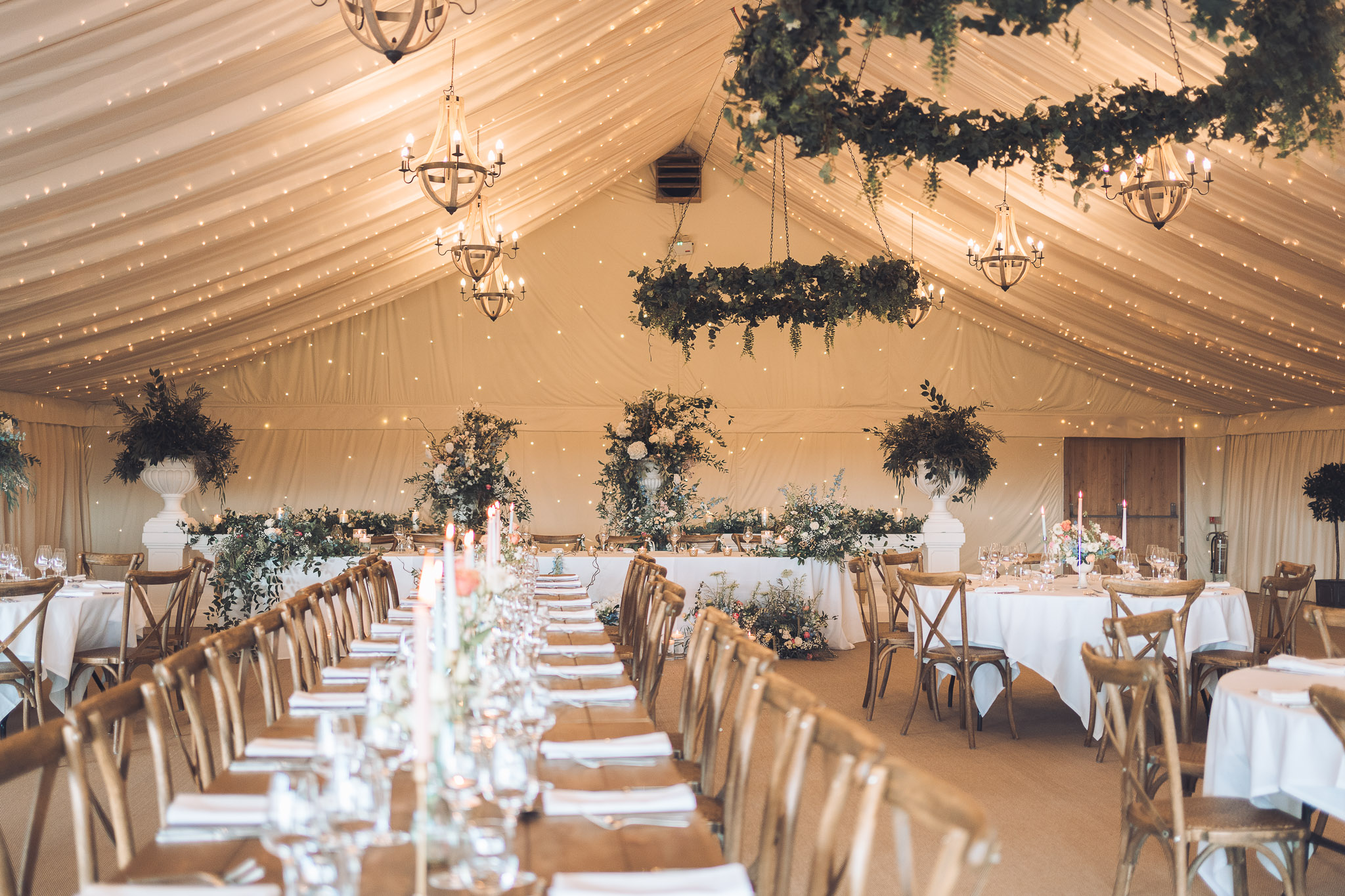
A wedding should always be a truly joyous occasion. A day filled with love, laughter and beautiful memories that will last a lifetime. However, to ensure there are no hitches and all the magical moments are captured flawlessly, it is vital that the day is planned to the very last detail. After all, no one wants to have to deal with unexpected hiccups when they should be basking in the joy of their special day.
In this blog, we will discuss all the essential elements of planning a wedding and how to prevent last-minute problems that could ruin an otherwise perfect and unforgettable day.
Define Your Wedding Vision
Your wedding day is a reflection of your unique love story and personal style. Defining a clear wedding vision is the first crucial step in bringing your dream celebration to life, helping you make decisions that align with your values and preferences. Not only will a well-defined vision ensure that your wedding is authentic and meaningful, but it will also help prevent any unnecessary stress and confusion down the road.
Create a vision or Pinterest board for inspiration
Pinterest boards are incredibly popular among couples planning to tie the knot, and for good reason! Creating a visual representation of your wedding can be extremely beneficial. It can serve as a source of inspiration and a reference point for both you and your wedding suppliers.
Consider putting together a Pinterest or vision board filled with images, colour palettes, decor ideas and other elements that inspire you. Sharing your vision in a visual format will ensure that everyone involved in the process is on the same page, making it easier to turn your dreams into reality.
Involve your partner
One of the most critical aspects of defining your wedding vision involves discussing the plans with your partner and agreeing on the overall style and theme. Remember, your wedding day should reflect both your personalities and preferences, which is why it’s so important that you have open and honest conversations about the look and feel you are hoping to achieve.
Whether you are considering holding your reception in a romantic garden or a rustic barn (such as the weddings we hold here at Crockwell Farm), finding common ground on the style and theme will establish the direction for all your other planning decisions. In this way, every aspect of your wedding, from the invitations to the floral arrangements and the venue itself, will cohesively contribute to your overall vision.
Set a Budget
Setting a budget is more than just another task; it’s the foundational pillar upon which your entire wedding celebrations will stand, helping you stay in control of your expenses. This is why it should be one of the very first steps in your planning process. By determining a budget at a very early stage, you can make informed choices about your guest list, venue, suppliers and all the other elements that will contribute to a fabulous day.
Wedding budget essentials
Although establishing a budget may at first seem overwhelming, it doesn’t have to be! You should begin by compiling a list of all the essential expenses, including the venue, catering, photography, attire and decorations. Conduct some research into the typical prices in your area to get a realistic idea of what to expect. Make sure you prioritise your spending based on what matters most to you and your partner.
It is also a good idea to allocate more resources to the most important aspects to you as a couple while being flexible in areas that could in all honesty accommodate cost-saving measures. Remember to include hidden costs such as taxes and gratuities, and always leave some room for unforeseen expenses. Finally, regularly review and update your budget as you make decisions along the way, and consider using budgeting tools or apps to help you stay organised and on track.
Set aside a contingency fund
As with everyday life, surprises can arise at any moment when planning a wedding. This is why you should always set aside a contingency fund. This cushion, typically around 10% of your wedding budget, will cover unexpected costs or emergencies that may crop up. Whether it’s a sudden change in the weather or a supplier cancelling at the last minute, having a contingency fund in place will ensure you can adapt and overcome these challenges without derailing your celebration.
Create a Guest List
The guest list is at the heart of your wedding day. This is not just a list of names; it will reflect the people who matter most to you and your partner. Beyond that, it will have a significant impact on various aspects of your wedding, from the size of the venue and the catering costs to the overall atmosphere and logistics.
Your guest list will also have an impact on the intimacy of the occasion, the seating arrangements and even your overall budget. It’s important to remember that every guest represents more than just an attendee; they will be bringing their unique personalities, preferences and expectations to your special day. As such, it is vitally important that you put a lot of thought into your guest list.
Draw up a preliminary guest list
Drawing up a preliminary guest list is the initial step towards defining who will be a part of your special day. Begin by sitting down with your partner and separately jotting down names of the friends, family members and acquaintances you would each like to invite. Then, compare your lists and look for common names while considering special circumstances, such as work colleagues and distant relatives.
Be mindful of the capacity of your chosen venue as well as your budget. While it may be tempting to invite everyone you know, you need to prioritise those who hold a special place in your life and whose presence will enhance your wedding.
Factors to consider when trimming down your guest list
Although narrowing down your guest list can be quite a challenge, you must ensure that you stick to your budget. Consider factors such as:
- Relationships – prioritise close family members and friends who have been a significant part of your lives.
- Venue capacity – be mindful of the capacity limitations of your venue.
- Budget constraints – keep in mind that every guest will add a cost in terms of catering, seating and invitations.
- Mutual consent – discuss choices with your partner and try to come to a joint decision.
- Plus-ones – Determine your approach to plus-ones and whether they will be extended only to married or engaged guests.
- Categories – organise your list into categories such as “must-invites”, “maybes” and “regrets only” as this will enable you to streamline your decisions.
- Follow-up – be prepared for follow-up conversations with guests who may expect an invitation but aren’t actually on your initial list.
Choose a Wedding Date
Selecting a wedding date is a pivotal decision that extends far beyond circling a date on a calendar. For example, it will have a significant impact on supplier availability and associated costs. Wedding venues, photographers and caterers often have peak and off-peak seasons, which can affect their availability and pricing. Popular wedding dates can lead to higher demand and potentially elevated costs.
Conversely, choosing a less conventional date may offer more flexibility and potential savings. Therefore, understanding the correlation between your preferred date and supplier availability and costs is crucial.
Practical tips for selecting a wedding date
When choosing your wedding date, aim for a balance between significance and practicality. You may wish to consider dates that have a personal meaning, such as the anniversary of your first date or a special milestone in your relationship. However, you should also be mindful of the following:
- Lead time – to avoid the stress of a rushed planning process, make sure you have enough time to prepare and organise.
- Weather – research the usual weather conditions in your chosen location and season as this can have a huge impact on your wedding day experience. At Crockwell Farm, we are able to offer wedding venues you can use as a backup should the weather turn sour. As a result, your wedding celebration will go ahead as planned, come rain or shine.
- Guest convenience – think about your guests and their ability to attend, taking account of factors such as travel and holidays.
- Budget – be aware of any price fluctuations that might be associated with your selected date, especially if it’s during a peak wedding season.
- Season – consider the advantages and disadvantages of each season. Spring and summer are generally warm and pleasant. Autumn will often bring beautiful foliage, while winter may be the ideal time to create a cosy and romantic ambience.
- Day of the week – although weekdays tend to be less expensive, weekends are usually more convenient for guests who need to travel. Weigh your priorities in terms of budget and guest attendance.
- Holidays – holiday times can add a festive touch to your wedding, but they may also lead to increased costs and potential scheduling conflicts for your guests. Be mindful of major holidays and how they will tie in with your vision.
Research and Book Your Wedding Venue
Securing the venue is a critical early step in the planning process as it will set the tone for the entire day. Wedding venues, especially the more popular ones, tend to get booked very quickly. Some are even booked as early as one year in advance.
Booking early will ensure that you will have certainty in terms of your preferred location. It will also be advantageous as you try to secure your other suppliers and plan the rest of your wedding. More importantly, you will have peace of mind knowing that you have a confirmed venue, allowing you to focus on the finer details of your special day.
Important questions to ask
When visiting your potential wedding venues, make sure you have a list of relevant questions as this will help you make an informed decision. Here are just some of the questions you should be asking the venue’s wedding planner:
- Is the venue available on our preferred date?
- Can you comfortably accommodate our guest list?
- What is the cost, and what is included?
- Do you use in-house catering or can we bring in our own caterer?
- Are there any restrictions on decor, music and alcohol?
- What is the backup plan in the event of inclement weather (for outdoor weddings)?
- Is there ample parking and is the venue easily accessible to all of our guests?
- What are the setup and cleanup procedures, and is the cost included in the rental fee?
- Are there any restrictions on the suppliers we can work with?
- Do we need event insurance and what is the venue’s liability policy?
Start Assembling Your Wedding Team
Your wedding day is a complex production that requires a dedicated team of professionals to bring your vision to life. Key suppliers, such as your wedding planner, caterer, photographer and florist, play pivotal roles in ensuring a seamless and memorable occasion. Each supplier will bring their own expertise to the table, contributing to the overall success of your big day.
From managing logistics and design to capturing those precious moments, the suppliers are the backbone of the operations. For this reason, it is vital that you choose the right team so you can enjoy a stress-free and unforgettable wedding planning experience.
Should you hire a wedding planner?
One of the first considerations when assembling your wedding team is whether to hire a wedding planner/coordinator. If you would like to utilise the expertise of a professional planner, it’s best to secure their services as soon as possible. An experienced wedding coordinator will help you navigate the complexities of planning, streamline your decision-making process and provide a wide range of other valuable insights.
Crockwell Farm is more than just a wedding venue. With our team of highly experienced wedding coordinators, we go beyond providing a picturesque backdrop for your special day. Our dedicated wedding professionals will work tirelessly to understand your unique vision and execute it flawlessly. We are here to offer tailored solutions, ensuring that every detail, from the decor to the logistics, will align with your preferences and tastes.
Early Preparation is Key
As every little detail matters in the wedding planning process, it is imperative that you are meticulous in your preparations as this will help ensure a smooth and stress-free occasion. By being able to foresee and resolve last-minute surprises and hiccups, you and your partner can focus on enjoying your special day. Therefore, if you take the time to plan every single detail, you will be able to create a wedding day that is filled with beautiful memories but without any unnecessary stress!
Due to its idyllic and naturally beautiful surroundings and highly experienced staff, Crockwell Farm is the perfect location to transform your dream wedding into a reality. Book a tour of our venue today. We’d love to hear about your exciting wedding plans!





